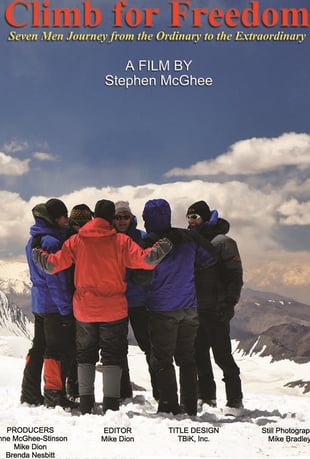The Grateful Leader has More JU JU
- posted in Leadership
“Ju Ju” is vital energy. Its velocity. It’s spiritual enthusiasm. It’s inspiration in motion. So, how does one create more Ju Ju?
In my view, it comes from Gratitude.

Notice that you work hard to reach your goals. You reach some, but not all of them. Because this world is so conditioned to look at what we don’t have, you therefore focus on what’s not working. And when you focus long enough on that negative viewpoint, your work life begins to feel meaningless.
Like you, I am susceptible to the same temptations as other people—including the temptation to obsess about all the things in my life that are not working.
So how do I get unstuck?
I’ve trained my heart and mind to treat cynical thoughts the way a Teflon pan treats sticky proteins: it lets them slide in and out without sticking.
You may be thinking: Sure that sounds great, but those negative thoughts just come up on their own, so how can I control them?
Maybe you can’t control which thoughts appear. But you can do something about how long they stick around.
Just notice when they do appear, and gently but deliberately follow them up with another thought.
Try this: Every time you’re hit with a thought about how you’ve failed, what’s missing, or why your dreams aren’t possible, follow that thought with one of gratitude.
You’ll begin to notice a shift in your mindset. Your heart will open more fully.
By shifting your mind, you make room for the ideas, goals, and plans that can lead you toward success.
What can you be grateful for?
Everything.
Not just successes, but failures, too. Not just everything you have, but everything that’s missing.
The moment you find yourself mourning your past failures and losses, or fearing future failures and losses—you can acknowledge those thoughts, but then immediately follow them up with a thought of gratitude for anything in your life that you can think of at that moment.
I mean anything.
Anything you’ve experienced, learned, produced, seen, not seen, been, not been, done, not done. Be grateful for the gifts in your life and the achievements you’ve made. But also challenge yourself to honestly consider what kind of strength your losses and failures have given you. What have I learned from the tough times? How can I use those times for my advancement, learning and growth?
You won’t ever be able to get rid of all negative thoughts. Knowing that is one of the benefits of getting real! But what you can do is gain gratitude. Without gratitude, it’s tough to rise above the obstacles in your life. Even if you run up a mountain halfway around the world, you’ll just bring all your issues with you, and carry them around like a backpack full of rocks. I know; I’ve been there. It can get heavy.
Don’t try to force this process. Just gently turn your mind and heart toward the things you love and let the energy flow naturally. When I feel grateful and appreciative for my life, the feeling isn’t like pushing against the current of negativity. Instead, it’s like jumping into a river and letting myself float with the current, flowing with the stream.
Gratitude is your key to freedom. Is that a spiritual idea? That’s up to you. You can be grateful to God, to everyone, to yourself…or you can simply feel gratitude for its own sake.
Practicing gratitude works. Here’s to good Ju Ju.
Blessings,
Stephen Paul
Get Real
The next time you find any area of your life in a slump, try this experiment in gratitude: take note of how your day’s activities have been going so far? Now, stop, close your eyes and look for the things you are appreciative of? Feel those things deeply. It can be little things, like a good night’s sleep, a great conversation with a friend…and funny story. Use this opportunity to build the good Ju Ju in your life. Make note of how your day goes after that. Notice your mental acuity. Take note of your heart space or emotional state. Consider how productive you are.
any area of your life in a slump, try this experiment in gratitude: take note of how your day’s activities have been going so far? Now, stop, close your eyes and look for the things you are appreciative of? Feel those things deeply. It can be little things, like a good night’s sleep, a great conversation with a friend…and funny story. Use this opportunity to build the good Ju Ju in your life. Make note of how your day goes after that. Notice your mental acuity. Take note of your heart space or emotional state. Consider how productive you are.
If you find that your day improves, then the next day, whether you’re having a bad day or not, list 10 things you’re grateful for. Add these to the previous list, or start a new one. The third time, I challenge you to make a list of 15 things you appreciate. I encourage you to do this for twenty days until you’ve made a list of at least 100 things that are working in your life. If you do this exercise in earnest, I assure you that you’ll shift from stuck to mobile, from negative to positive. Eventually, you may find this is a constant state of being in your body, heart and mind.

 I sincerely appreciate your help in getting my film out to others who can benefit from its content. If my film gets the top three fan votes, it will be enshrined in the Collection for Fandependent Films. I would be honored to have your help in this endeavor.
I sincerely appreciate your help in getting my film out to others who can benefit from its content. If my film gets the top three fan votes, it will be enshrined in the Collection for Fandependent Films. I would be honored to have your help in this endeavor.


 What is Soul Centered Leadership?
What is Soul Centered Leadership?

